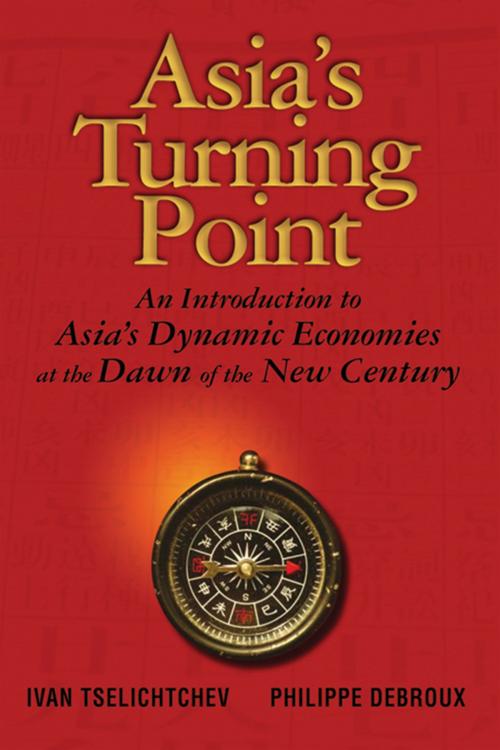Asia's Turning Point
An Introduction to Asia's Dynamic Economies at the Dawn of the New Century
Business & Finance, Finance & Investing, Finance| Author: | Ivan Tselichtchev, Philippe Debroux | ISBN: | 9781118580622 |
| Publisher: | Wiley | Publication: | November 26, 2012 |
| Imprint: | Wiley | Language: | English |
| Author: | Ivan Tselichtchev, Philippe Debroux |
| ISBN: | 9781118580622 |
| Publisher: | Wiley |
| Publication: | November 26, 2012 |
| Imprint: | Wiley |
| Language: | English |
Asia was probably the biggest economic sensation of the post-war decades. The breathtaking success of Japan was followed by a remarkable rise of "four tigers", then ASEAN founder states and then China. The Asian miracle became a commonly accepted definition of this success. In the late 1970s and especially 80s it became clear that the balance of power in the world had changed. Politicians, businessmen, scholars began to talk about "the new Asia Pacific age" and Asian economic model, different from and, maybe, even superior to Western capitalism. However, in 1997-98 the Asian economic crisis came and made the region a sick man. Six years before that Japan, the regional powerhouse entered more than a decade-long period of stagnation. The miracle was over. However, the crisis was overcome within a surprisingly short period of time. Naturally, the question arises: What now? What is going on in the region after the miracle and after the crisis? What is today's face of Asian capitalism and how should we view its performance?
Readers interested in regional developments will find a lot of literature about miracle decades and crisis years. However, few analysts have addressed the challenging questions addressed in this book.
The authors vividly show that Asian capitalism is undergoing a radical structural transformation. These changes are directly affecting its key institutions: governments, companies, labor relations, etc. As a result Asian economic systems are becoming much closer to the Western-style, especially Anglo-Saxon capitalism, though the region retains some important specific features, especially regarding business culture.
This book is a must for business people worldwide, for all those who study the region in colleges and business schools, for people engaged in various international activities and, finally, for all those who want learn more about our world at the dawn of the new century.
Asia was probably the biggest economic sensation of the post-war decades. The breathtaking success of Japan was followed by a remarkable rise of "four tigers", then ASEAN founder states and then China. The Asian miracle became a commonly accepted definition of this success. In the late 1970s and especially 80s it became clear that the balance of power in the world had changed. Politicians, businessmen, scholars began to talk about "the new Asia Pacific age" and Asian economic model, different from and, maybe, even superior to Western capitalism. However, in 1997-98 the Asian economic crisis came and made the region a sick man. Six years before that Japan, the regional powerhouse entered more than a decade-long period of stagnation. The miracle was over. However, the crisis was overcome within a surprisingly short period of time. Naturally, the question arises: What now? What is going on in the region after the miracle and after the crisis? What is today's face of Asian capitalism and how should we view its performance?
Readers interested in regional developments will find a lot of literature about miracle decades and crisis years. However, few analysts have addressed the challenging questions addressed in this book.
The authors vividly show that Asian capitalism is undergoing a radical structural transformation. These changes are directly affecting its key institutions: governments, companies, labor relations, etc. As a result Asian economic systems are becoming much closer to the Western-style, especially Anglo-Saxon capitalism, though the region retains some important specific features, especially regarding business culture.
This book is a must for business people worldwide, for all those who study the region in colleges and business schools, for people engaged in various international activities and, finally, for all those who want learn more about our world at the dawn of the new century.















